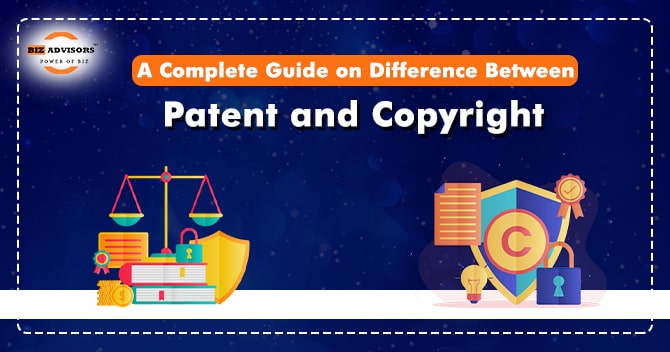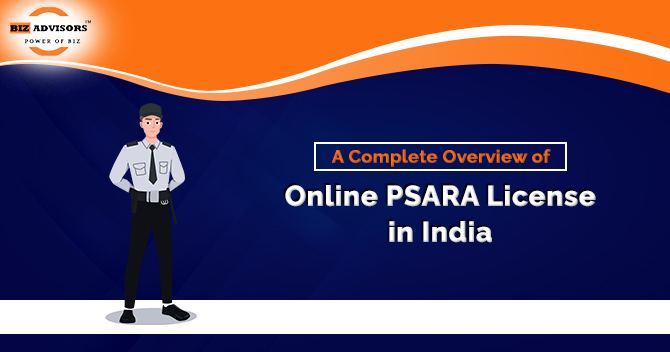The Difference Between Patent and Copyright refers to the various roles and purposes of intellectual property rights, which serve as a foundation for protecting an inventor’s idea from unintentional harm. Though there are some fundamental differences that set the operating mechanisms of both apart, patents and copyrights systematically adjoin the idea of many parallels in protecting the creator’s authorized work. We must examine the functions of the patent in connection to author rights in relation to the distribution and sale of the intellectual writing piece individually in order to understand the ideal Difference Between Patent and Copyright. We also need to comprehend how the author’s rights to republish and recreate the work relate to the structural pattern of copyright responsibilities. The blog is to give readers a peek at the picturesque aspects of the Differences Between Patents and Copyrights, which will aid in the understanding of the variations that both of these intellectual property rights generally have. The utmost effort has been made in this blog to explain the Difference Between Patent and Copyright.
What is a Patent?
The patent is a unique legal privilege granted to the patentee for a certain period of time regarding an innovation. By obtaining a patent for a novel invention, the patentee gains the power to prevent a patented product or method from being made, used, sold, or imported without his or her permission. Any novel, inventive, and capable of industrial application invention relating to a product or a process of such a product may be protected by a patent in India.
What is Copyright?
Creators of musical, artistic, dramatic, and imaginative works as well as those who make cinematograph films and sound recordings are granted the right to the copyright under the regulations and rules of the applicable legislation. Copyright does not protect names, brands, short phrases, slogans, short sentences, procedures, or factual information. Copyright does not protect concepts or ideas. Therefore, copyright is primarily employed as a safety mechanism for the originality of writers, artists, designers, architects, dramatists, musicians, and creators of sound recordings, motion pictures, and computer software.
Important Information About Copyright and Patents
- Authors benefit from copyright, but inventors are the main focus of patent law.
- Copyright is often implemented by businesses to protect their creative and intellectual property.
- The emphasis of copyright is on visual and performing arts. The patent, in contrast, covers technological advancements and medical equipment.
- Depending on the genre of artwork, the time restriction after copyright registration ranges from 70 to 170 years. Contrarily, the patent is valid for 15 to 20 years
Distinctive Features of Patent and Copyright
The following are the different features of Patent and Copyright;
- Copyright is a privilege given by the law to the creator of creative work. Along with the rights to reproduction, distribution, and other things, it also includes the right to modify work.
- A patent is a privilege that the state grants to protect an innovation for a specific amount of time. According to the applicable patent law, the innovation cannot be bought, made, or imported without the inventor’s permission.
- Copyright’s applicability is constrained because it can only be employed in specific kinds of works.
- It is widely employed in literary and artistic works, especially poetry, cinema, music, photography, and the visual arts.
- A patent-protected methodological advancement that is consistent with originality and distinctiveness.
- Copyright registration continues to be in force for 60 years even after the owner’s death.
- Upon application filing, a patent registration is valid for 20 years.
- Through copyright registration, the owner can quickly reproduce and share the original work.
- A patent is given for the invention, such as the components utilized in an element or a particular process.
- The artist’s concept cannot be copied or replicated. Thanks to the Copyright Act[1].
- A patent puts safeguards in place to discourage people from stealing the concept behind innovation and also forbids selling and importing the patented item.
- Designers and innovators can apply in relation to copyright registration at any moment.
- Innovation cannot be secured by a patent after it is released to the public or introduced to the marketplace.
- For all types of patents, all inventors are required to complete a registration process. Contrarily, the Sound Recording Copyright is an automatic process that doesn’t call for registration. For instance, the telephone or microwave oven may be covered by a patent, while Microsoft Windows may only be covered by copyright as a result of a significant invention.
Conclusion – Difference Between Patent and Copyright
The Crucial Difference Between Patent and Copyright is the basis for managing intellectual property in a way that gives authors a place to display their original works while still enjoying all of their legal rights. Knowing the fundamental Differences Between Patents and Copyright is essential for any social media influencer or content creator who wants to exercise all of their legal rights and protect their work from potentially harmful sources. The idea that copyright is constrained within the parameters of artistic creation is based on the structural design of copyright. On the other hand, the ideal working design of a patent speaks to the idea of protecting the person’s original intellectual creation. In this blog, we’ve tried to highlight every critical Difference Between Patent and Copyright that’s important for evaluating the effectiveness of IP rights from a wider angle and with a clearer vision. A 24-hour legal consulting company, BizAdvisors.io, is available to serve its clients. Therefore, if you have any queries about Intellectual Property Rights- Patent, Trademark, and Copyright, and the difference between them, don’t hesitate to contact our legal professionals. They will help you with your issues and find a simple solution.
Read our article:All You Need to Know About Expired Patent Renewal Process
 9559179325
9559179325 9559179325
9559179325





